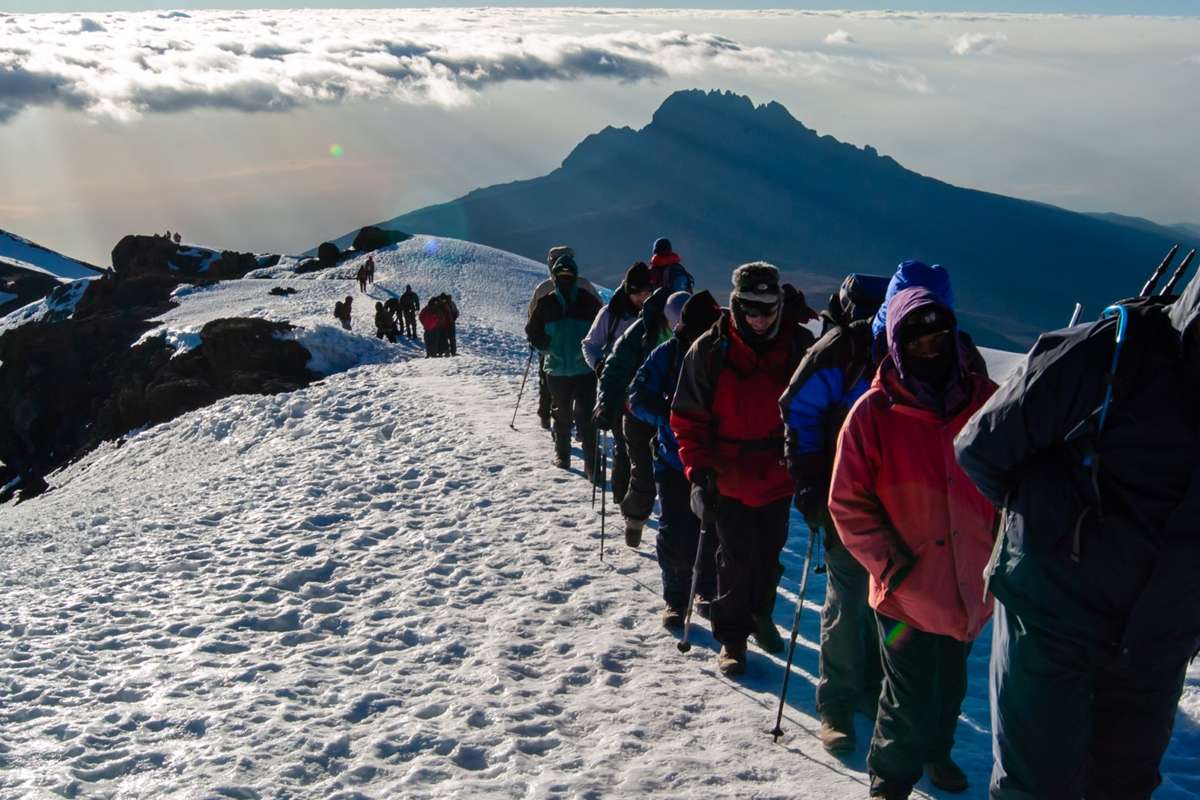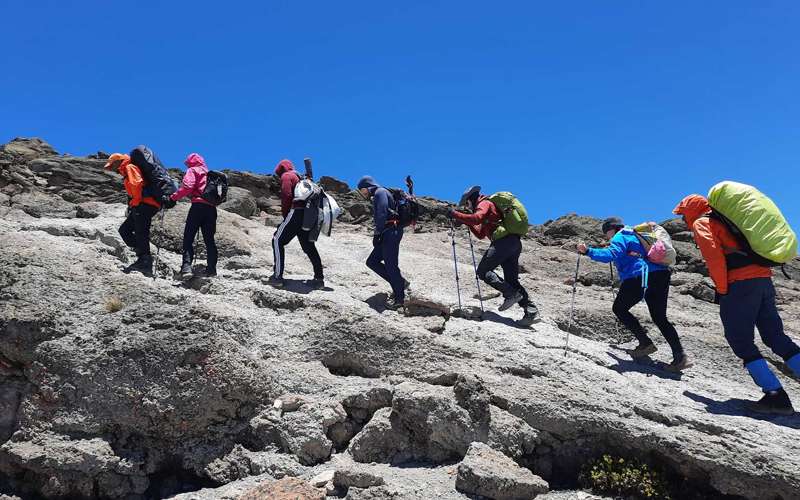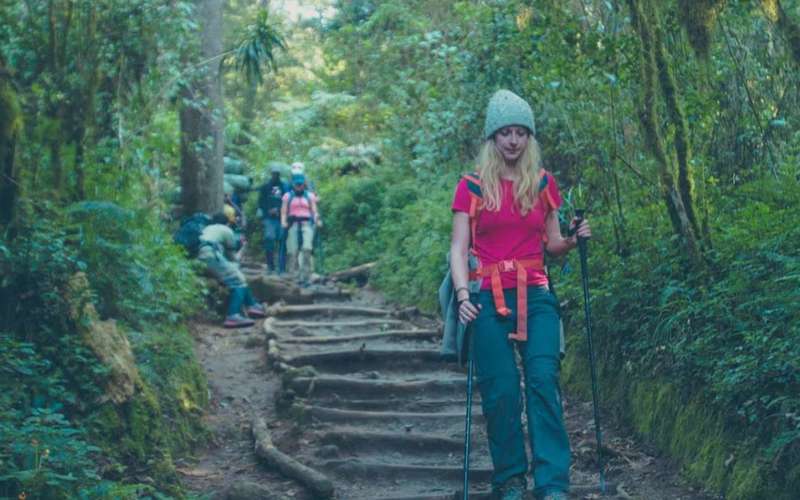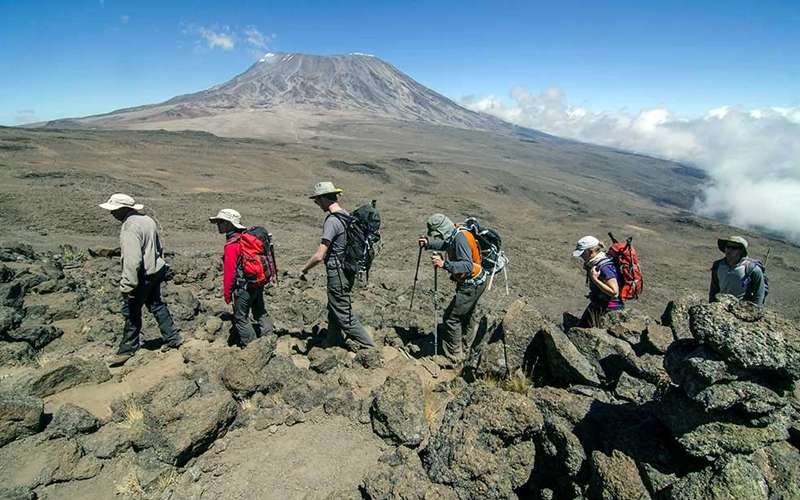Mount Kilimanjaro, Africa’s tallest peak, stands at 5,895 meters above sea level, offering a challenging yet rewarding adventure for those who dare to summit it. This iconic mountain in Tanzania attracts thousands of climbers each year, drawn by the promise of breathtaking views, personal achievement, and the unique experience of traversing diverse ecosystems. Climbing Mount Kilimanjaro is not just a physical challenge but a journey that offers numerous benefits, from physical fitness to personal growth and environmental appreciation. This article explores the many advantages of embarking on this epic adventure.
Physical Fitness and Health Benefits
Climbing Mount Kilimanjaro is an excellent way to boost your physical fitness. The trek involves long hours of walking, often at high altitudes, which helps improve cardiovascular health, build muscle strength, and enhance endurance. The physical demands of the climb require you to be in good shape, motivating you to engage in regular exercise and conditioning before your trip.
- Cardiovascular Health: The sustained aerobic activity of trekking at high altitudes strengthens your heart and lungs. As you ascend, your body works harder to supply oxygen to your muscles, improving your cardiovascular fitness and overall stamina. Regular training and the climb itself contribute to a healthier heart and better lung capacity.
- Muscle Strength and Endurance: The varied terrain of Mount Kilimanjaro, from lush rainforests to rocky alpine deserts, challenges different muscle groups. Carrying a backpack and navigating steep inclines build leg strength, core stability, and overall endurance. The climb enhances your physical resilience, preparing you for future adventures and everyday activities.
Mental and Emotional Well-being
The mental and emotional benefits of climbing Kilimanjaro are just as significant as the physical rewards. The journey tests your mental fortitude, perseverance, and problem-solving skills, fostering personal growth and self-discovery. Overcoming the challenges of the climb can boost your confidence and sense of achievement.
- Mental Resilience: Facing the rigors of the ascent requires determination and mental toughness. The experience teaches you to push through discomfort, manage stress, and stay focused on your goal. The skills and mindset developed during the climb can be applied to various aspects of life, helping you tackle challenges with greater resilience.
- Emotional Fulfillment: Reaching the summit of Mount Kilimanjaro is an emotional and exhilarating achievement. The sense of accomplishment, combined with the awe-inspiring views from Uhuru Peak, provides profound emotional fulfillment. The journey allows for introspection and personal reflection, leading to a deeper understanding of yourself and your capabilities.
Connection with Nature
Climbing Kilimanjaro offers a unique opportunity to connect with nature in a profound way. The mountain’s diverse ecosystems, from tropical rainforests to glacial fields, showcase the beauty and complexity of the natural world. This connection fosters a greater appreciation for environmental conservation and the importance of protecting natural habitats.
- Biodiversity and Ecosystems: Mount Kilimanjaro is home to a rich variety of flora and fauna, many of which are endemic to the region. The climb takes you through different climate zones, each with its unique biodiversity. This experience enhances your understanding of ecological interdependence and the need to preserve these delicate ecosystems.
- Environmental Awareness: Witnessing the effects of climate change on Kilimanjaro’s glaciers and environment underscores the urgency of environmental conservation. The climb raises awareness about the impact of global warming and the importance of sustainable practices. Many climbers return with a renewed commitment to protecting the planet.
Cultural Exchange and Local Support
The journey to Kilimanjaro provides opportunities for cultural exchange and supports local communities. Engaging with local guides, porters, and communities enriches your understanding of Tanzanian culture and traditions. Additionally, your climb contributes to the local economy, providing jobs and income for the people involved in the trekking industry.
- Cultural Enrichment: Interacting with local guides and porters offers insights into their way of life, traditions, and stories about the mountain. This cultural exchange fosters mutual respect and understanding, broadening your perspectives and enhancing your travel experience.
- Economic Benefits: Tourism generated by Kilimanjaro climbs significantly contributes to the local economy. Hiring guides, and porters, and staying in local accommodations supports livelihoods and promotes sustainable tourism practices. Your adventure helps improve the quality of life for many Tanzanian families.
Personal Growth and Life Skills
The challenges and experiences of climbing Kilimanjaro provide valuable life skills and personal growth. The journey encourages you to step out of your comfort zone, face fears, and develop problem-solving abilities. These skills are transferable to many areas of life, enhancing your personal and professional development.
- Goal Setting and Achievement: Successfully planning, training for, and completing the climb requires setting and achieving specific goals. This process strengthens your ability to set realistic objectives, plan effectively, and celebrate accomplishments. The sense of achievement upon reaching the summit inspires confidence and ambition in future endeavors.
- Teamwork and Leadership: Climbing Kilimanjaro often involves being part of a team, requiring cooperation, communication, and leadership. Working together to overcome challenges fosters a sense of camaraderie and teaches the importance of teamwork. These experiences enhance your leadership skills and ability to work effectively with others.
Spiritual and Inspirational Experience
For many, climbing Kilimanjaro is a spiritual and inspirational journey. The solitude and majesty of the mountain provide a space for reflection and a deeper connection with oneself. The journey inspires a sense of wonder and reverence for the natural world, often leaving climbers with a renewed sense of purpose and perspective.
- Spiritual Reflection: The quiet and isolation of the mountain offer an ideal setting for spiritual reflection and meditation. The climb allows you to disconnect from daily distractions and connect with your inner self, fostering a sense of peace and clarity.
- Inspiration and Motivation: The experience of overcoming physical and mental challenges to reach the summit is profoundly inspiring. The journey motivates you to pursue your dreams and face future challenges with confidence and determination. The memories and lessons from the climb continue to inspire long after the adventure ends.
Climbing Mount Kilimanjaro is more than just a physical challenge; it is a journey of self-discovery, personal growth, and environmental appreciation. The benefits of this adventure extend beyond the immediate thrill of reaching the summit, enriching your physical health, mental resilience, and cultural understanding. Whether you seek a fitness challenge, a spiritual journey, or a deeper connection with nature, climbing Kilimanjaro offers a transformative experience that leaves a lasting impact.
FAQs
1. Is climbing Mount Kilimanjaro safe? Yes, climbing Kilimanjaro is safe with proper preparation, a reputable guide, and adherence to safety guidelines. Ensure you choose an experienced tour operator.
2. How long does it take to climb Mount Kilimanjaro? The climb typically takes 5 to 9 days, depending on the chosen route and the climber’s acclimatization schedule.
3. Do I need technical climbing skills to summit Kilimanjaro? No, Kilimanjaro is a non-technical climb, meaning no ropes or special climbing equipment are required. However, physical fitness and preparation are essential.
4. What is the best time of year to climb Mount Kilimanjaro? The best times to climb are during the dry seasons: January to March and June to October, offering more stable weather conditions.
5. How can I prepare for the altitude of Kilimanjaro? Acclimatization is crucial. Choose a route with a gradual ascent, stay hydrated, and follow your guide’s advice to minimize the risk of altitude sickness.
To ensure you’re well-prepared for your Kilimanjaro adventure, explore the following topics on our page:
Visit our page for detailed information and tips to make your Kilimanjaro climb safe, enjoyable, and memorable.






